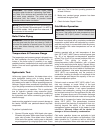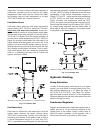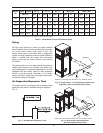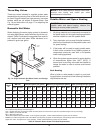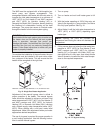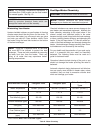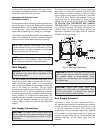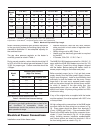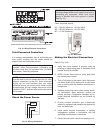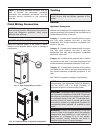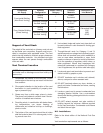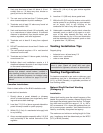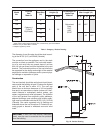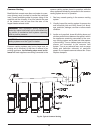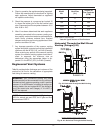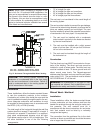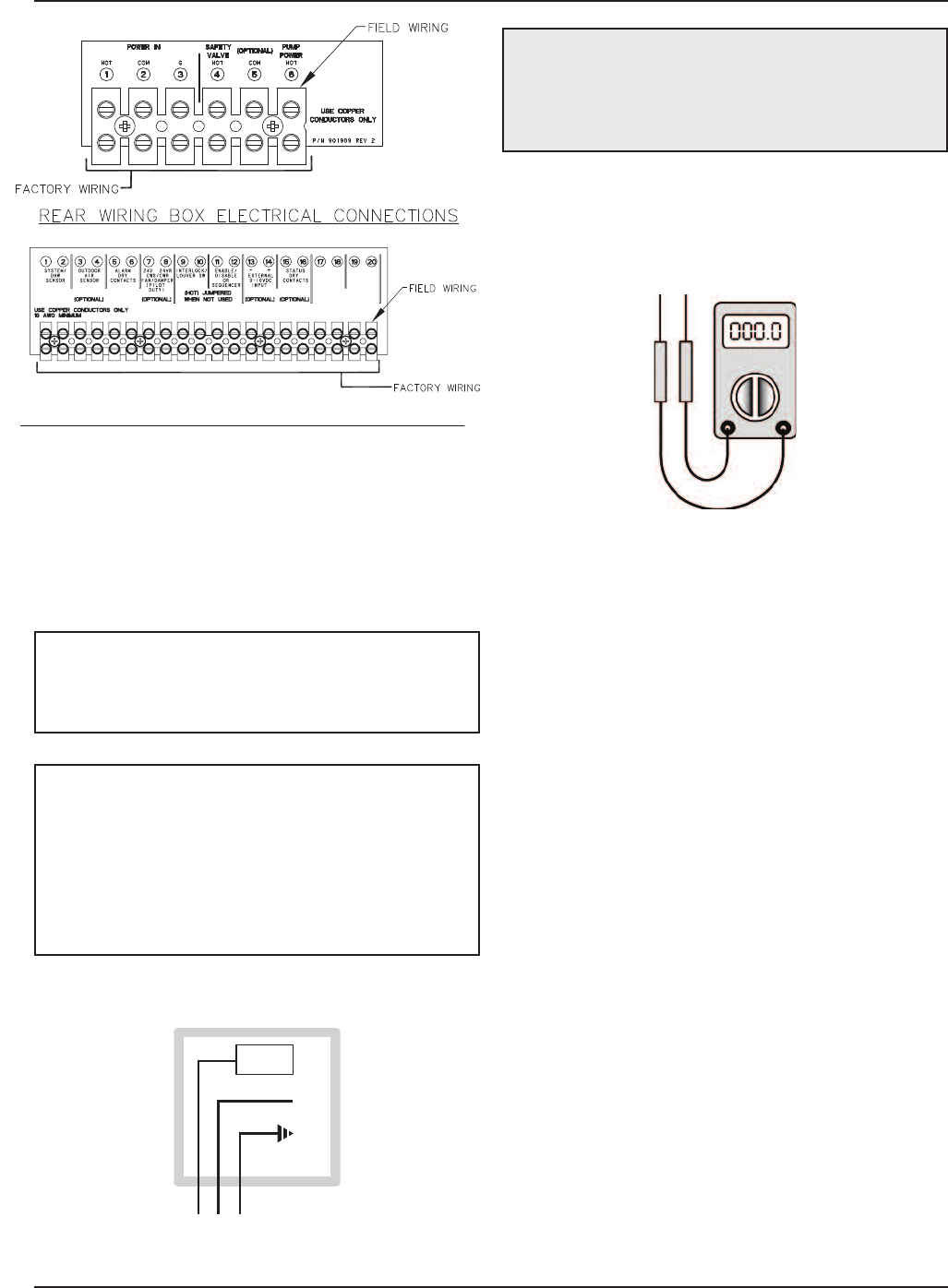
Check the power source:
AC = 108 VAC Minimum, 132 VAC MAX
AB = 108 VAC Minimum, 132 VAC MAX
BC = <1 VAC Maximum
Making the Electrical Connections
Refer to Fig. 18-21.
1. Verify that circuit breaker is properly sized by
referring to heater rating plate. A dedicated circuit
breaker should be provided.
2. NOTE: Current draw noted on rating plate does
not include pump current.
3. Turn off all power to the heater. Verify that power
has been turned off by testing with a multi-meter
prior to working with any electrical connections or
components.
4. Observe proper wire colors while making electri-
cal connections. Many electronic controls are
polarity sensitive. Components damaged by im-
proper electrical installation are not covered by
warranty.
5. Provide overload protection and a disconnect
means for equipment serviceability as required by
local and state code.
6. Install heater controls, thermostats, or building
management systems in accordance with the
applicable manufacturers’ instructions.
7. Conduit should not be used as the earth ground.
21
Field-Connected Controllers
It is strongly recommended that all individually-pow-
ered control modules and the heater should be
supplied from the same power source.
Check the Power Source
NOTE: Field-supplied isolation relays should be
installed when field-connected controllers are
mounted more than 50 equivalent feet (18 AWG)
from heater. See wiring diagrams.
FRONTWIRING PANEL LOW VOLTAGE ELECTRICAL CONNECTIONS
Fig. 18: Wiring Electrical Connections
CIRCUIT
BREAKER
WHITE
GROUND
BLACK
GREEN
ABC
Fig. 19: Wiring Connections
Fig. 20: Multi-meter
NOTE: Minimum 18 AWG, 105°C, stranded wire
must be used for all low voltage (less than 30 volts)
external connections to the unit. Solid conductors
should not be used because they can cause
excessive tension on contact points. Install conduit
as appropriate. All high voltage wires must be the
same size (105°C, stranded wire) as the ones on the
unit or larger.
WARNING: Using a multi-meter, check the
following voltages at the circuit breaker panel prior to
connecting any equipment. Make sure proper
polarity is followed and house ground is proven.
(See Fig. 19.)



